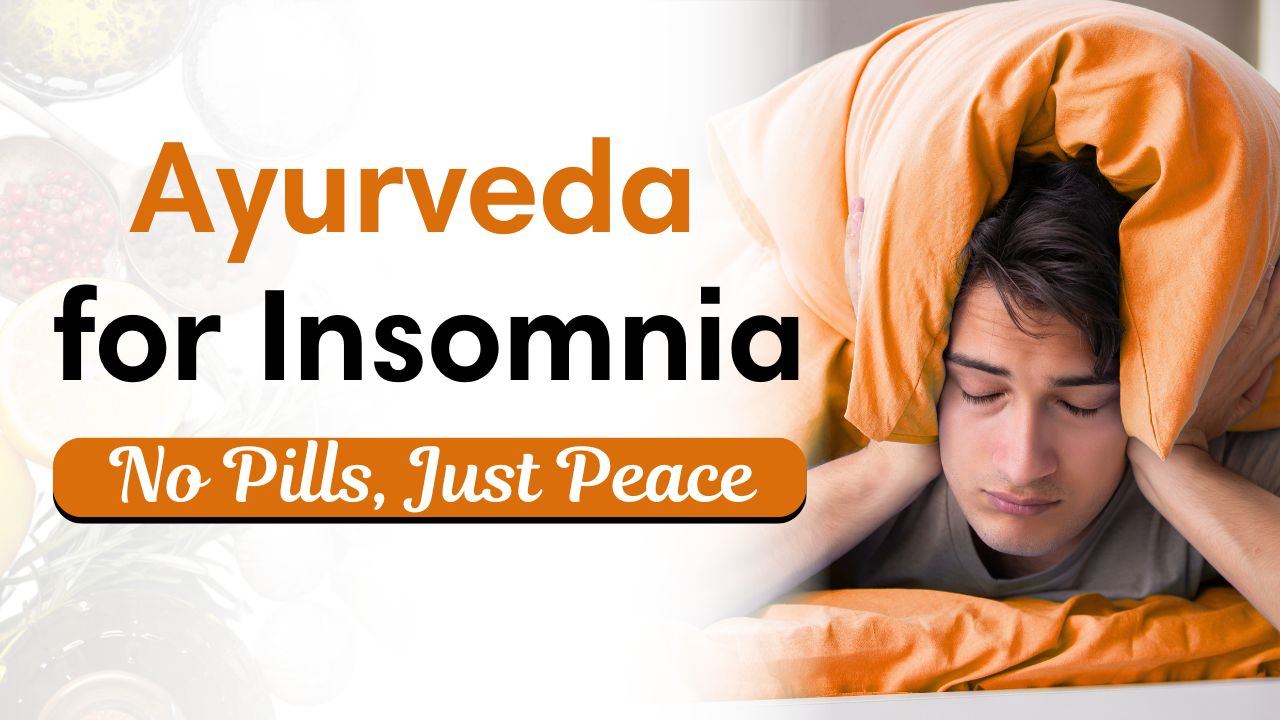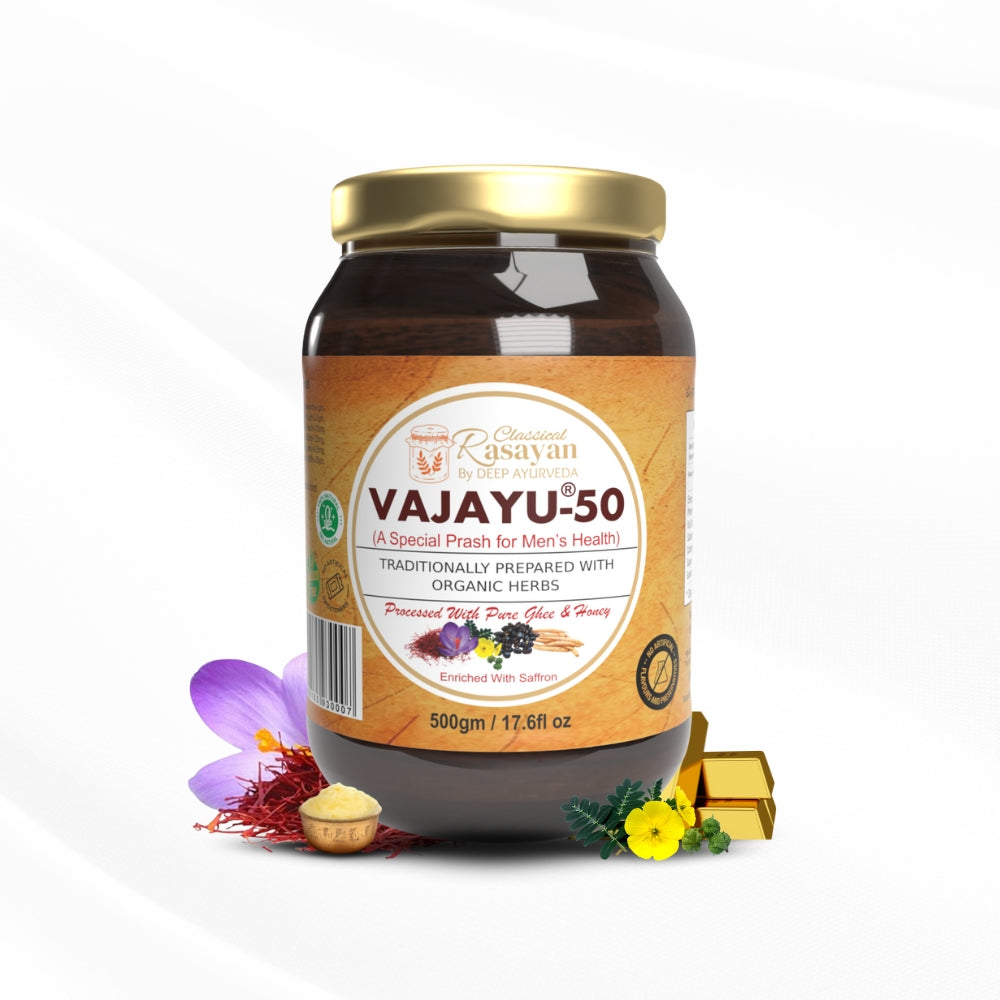Sleep is deeply intertwined with overall health, impacting both physical and mental well-being. Adequate and quality sleep is crucial for various bodily functions, including heart health, immune system function, hormone regulation, and cognitive processes.
Acharya Charaka has stated Nidra as, “It is a special state of mind in which the mind is not associated with any type of Indriyas. This detachment from the Bahiya Vishaya is the result of the tiredness of the body as well as the mind.”
Insomnia (ANIDRA) in Ayurveda
In Ayurveda, sleep (Nidra) is considered one of the three pillars of health (trya upstambh), alongside diet (Ahara) and lifestyle (Vihara). When sleep is disturbed, it indicates a doshic imbalance—most commonly Vata dosha, which governs the nervous system, movement, and mental activity.
Symptoms of Vata-Induced Sleep Imbalance:
-
Difficulty falling asleep
-
Light, broken sleep
-
Waking up with anxiety
- Overthinking or worry at night
Types of Nidra
Acharya Charaka has classified Nidra in the following manner according to causes [5]:
- Tamobhava - caused by tama
- Shleshmasamudbhava - caused by vitiated Kapha
- Manah-Sharirshramasaambhava - caused by mental and mental exertion
- Agantuki - indicative of bad prognosis leading imminent death
- Vyadhyanuvartini - caused as a complication of other disease like Sannipatajajwar
- Ratri-Swabhavaprabhava - caused by the very nature of the night
Natural Sleep Aids in Ayurveda
Ayurveda focuses on calming the nervous system, grounding excess Vata, and restoring a healthy circadian rhythm. Below are the top Ayurvedic remedies for insomnia:
1. Ashwagandha (Withania somnifera)
A powerful adaptogen, ashwagandha reduces stress and cortisol levels, calming the mind and helping with deeper, more restful sleep.
2. Tagara (Valeriana wallichii)
Known as Indian valerian, tagara has sedative effects and is one of the best herbal sleep remedies for chronic insomnia.
3. Jatamansi (Nardostachys jatamansi)
Balances all three doshas and is especially effective for Vata and Pitta imbalances. It calms the mind and promotes mental clarity.
Enhances memory, reduces anxiety, and helps prepare the mind for restful sleep.
A pinch of nutmeg powder in warm milk acts as a mild sedative and is safe for children and adults.
6. SANKHPUSHPI (Convolvulus prostratus)
Regular use of Shankhpushpi can help manage insomnia and improve overall sleep patterns
Ayurvedic Therapies for Chronic Insomnia
If lifestyle changes aren’t enough, consider Ayurvedic treatments that provide deeper healing:
Shirodhara—Continuous pouring of medicated oil on the forehead to calm the mind.
In Shirodhara, a continuous stream of warm herbal oil (like Brahmi, Ashwagandha, or Ksheerabala oil) is gently poured on the forehead (Ajna Chakra/third eye).
This soothing sensation stimulates the hypothalamus, calming overactive brain functions and reducing stress, anxiety, and racing thoughts, which are major causes of insomnia.
Nasya—Instilling herbal oils through the nostrils to nourish the brain and nervous system.
Basti (Medicated Enema)—Helps eliminate Vata from the colon, which is its primary seat.
Shiropichu-Shiropichu is a localized oil therapy in which a piece of sterile cotton or gauze is soaked in medicated oil and placed over the crown of the head (vertex/scalp) for a specific duration. The oil penetrates the scalp and calms the central nervous system through Sira-Snayu (nerves and blood vessels) in the scalp.
Marma Therapy-Marma Therapy is an ancient and profound Ayurvedic healing technique that is highly effective in managing insomnia (Anidra/Nidranasha) by stimulating specific vital energy points (Marma points) in the body. These points are junctions of muscles, nerves, bones, joints, ligaments, and vessels and are directly linked to the mind, prana (vital energy), and consciousness.
Shiroabhyang-Shiroabhyanga (Ayurvedic head massage) is a deeply relaxing and therapeutic procedure that offers remarkable results in insomnia (Anidra). It involves the application of warm herbal oils on the scalp, neck, and shoulders using gentle, rhythmic massage techniques.
Ayurvedic Lifestyle Tips for Better Sleep
Beyond herbs, Ayurveda encourages specific daily habits (Dinacharya) to improve sleep quality:
- Follow a Sleep Schedule-Go to bed before 10 PM to align with the Kapha phase of the night, which supports deep sleep.
- Eat a Light, Warm Dinner-Avoid heavy, fried, or cold foods at night. Include Vata-pacifying ingredients like ghee, cumin, ginger, and moong dal.
- Abhyanga (Oil Massage)-A warm oil massage with sesame or Brahmi oil before bedtime calms the nervous system and promotes sound sleep.
- Digital Detox-Avoid screens at least 1 hour before bed. Blue light aggravates Vata and suppresses melatonin production.
- Sleep Environment-Use calming aromas like lavender or vetiver. Keep the bedroom quiet, dark, and cool.
Conclusion: Ayurveda’s Gentle Power for Deep Sleep
Insomnia may seem difficult to treat, but Ayurveda offers natural and lasting relief by addressing the root cause—Vata sleep imbalance. Whether through sleep herbal remedies or lifestyle adjustments, you can restore your sleep and, with it, your overall well-being.






